





Dermatologist
The dermatology is a science about diseases and properties of skin. The dermatologist – the diagnosis, prevention specialist and treatment of diseases of skin, nails, hair and mucous. Proceeding from responses, dermatologists are very demanded in sport, medicine, in sanitary and epidemiologic structures, and also in cosmetology. These doctors in dermatovenerologic clinics, in scientific institutions, specialized clinics and policlinics work. Dermakosmetolog work in cosmetology offices and clinics.
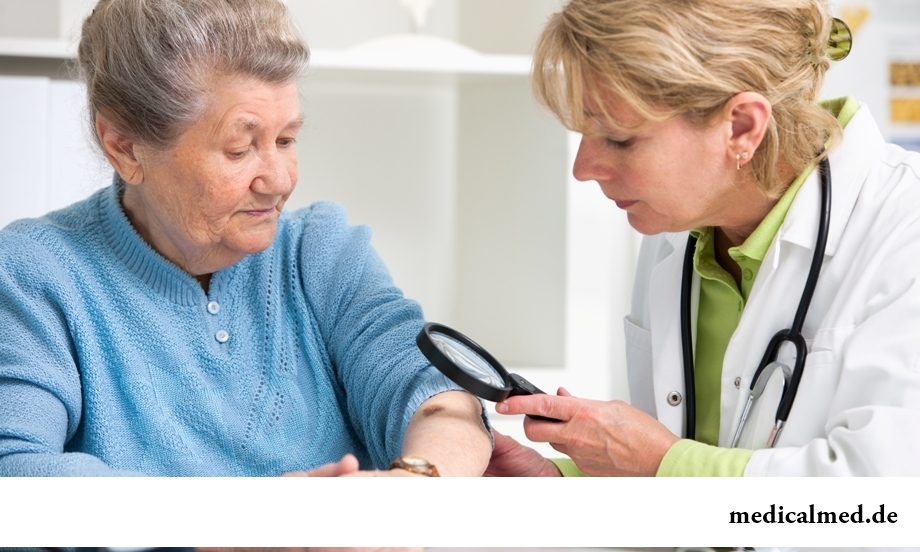
Features of a profession dermatologist
The dermatologist treats skin manifestations and directly diseases of skin and its appendages, eliminates cosmetic defects, diagnoses reactions of skin at diseases of other profile directions. The consulting help, and also the prevention of spread of infectious and quarantine diseases also belongs to duties of the doctor.
This specialty demands from the doctor of knowledge of symptomatology of the profile direction, and also other directions of medicine as the condition of skin is influenced by a set of internal and external factors. External factors can be considered impact of ultraviolet on skin, household chemicals, insects and ticks, production harm on site of work. Carry autoimmune, somatic, endocrine and venereal diseases, helminthic invasions, vegetative disturbances, low immunity and allergic reactions to internal factors. Therefore especially important to the doctor of this specialty to be able to diagnose with a fine precision of the reason and a form of reaction of skin, to timely reveal pathogenic factors and to develop the scheme of therapy and prevention of skin diseases. The dermatologist has to be able to pick up the scheme of treatment, individual for each patient, adequate to a stage and a form of a skin disease, age and a sex of the patient, associated diseases, professional and household features of each case.
The doctor of this specialty has to be able to feel pity for people. It has to aim to fill up the knowledge all the time, and also has to possess high sense of responsibility, resistance to stress. The dermatologist shall own all modern techniques of diagnosis and treatment of diseases of skin. Besides, for this doctor it is very important to know the basic rules of safety of patients and own safety as the most part of skin diseases belongs to infectious.
On reception of the dermatologist
Consultation of the dermatologist is extremely necessary at psoriasis, mycosis, warts, vitiligo, angiites, dermatitis, itch, herpes, eczema, an erythema, eels, seborrhea, an alopecia, mites, a contagious mollusk, candidiasis, condylomas sharp-pointed and other diseases of skin and manifestations on skin.
There will be no consultation of the dermatologist superfluous at puffiness, unhealthy skin color, cellulitis, cracks, various rash, wrinkles and vascular asterisks. You should not neglect also consultation of the dermatologist and at sunbed frequentation (for prevention of development of a carcinoma cutaneum).
Before reception of the dermatologist it is impossible to use the antiallergic means and drugs of external use causing distortion of a clinical picture of a disease.
Before drug treatment the doctor usually recommends to take an allergy test. The allergy test is carried out to find out whether the patient has allergy to the certain components which are contained in medicines.
On reception the dermatologist listens to complaints, asks on allergic reactions, on a way of life of the patient. Further the doctor conducts pigmental screening, dermatological examination of an integument. If necessary the doctor can appoint blood test, the analysis to herpes infections, measles, syphilis, gerpevirusa, immunoglobulin, puncture cytology of skin, scrapings from eyelashes and skin on mites, scrapings from a nail and skin on fungi, microscopy or an immunofluorescent research, Dermoscopy (at new growths). Judging by responses, the dermatologist most often combines symptomatic, etiological and pathogenetic methods of treatment. The doctor usually applies topical and general drug treatment, surgical treatment, the special mode and a diet, physical therapy, psychotherapy, a balneotherapy.
Together with the patient the dermatologist makes the individual scheme of treatment, answers all interesting questions and provides information on what cosmetic drugs it is the best of all to use for skin.
Children's dermatologist
The children's dermatologist is engaged in diagnosis, prevention and treatment of diseases of skin and its appendages at children. Most often at children allergic diseases of skin (eczema, atopic dermatitis) are observed, but also other dermatological diseases – inflammatory, pustulous and fungus skin diseases, an acne sometimes meet (eels, spots, acne rash). It is necessary to address the children's dermatologist if skin of the child reddened and it is shelled, on its surface the moknutiya, various rashes, erosion appeared. Consultation of the doctor is necessary in the presence on the surface of skin of the child of spots, small knots, papules, blisters, hillocks, hems and ulcers, unusual grazes, scales.
In treatment the dermatologist has to consider specific features of each child. Diagnosis of skin diseases at children's age has to be directed to inspection of a nervous system, internals of the child and a hormonal background. After inspection the dermatologist appoints necessary drugs, and also various creams, ointments, gels for external use. Besides, at some diseases, judging by responses, the dermatologist can appoint sanitation of the chronic centers of an infection, and also recommend a special medical diet and drugs for increase in protective forces of an organism.
The liver is the heaviest body in our body. Its average weight makes 1,5 kg.

Diapers for adults – individual one-time means of hygiene which in some situations is irreplaceable, and from such situats...
Section: Articles about health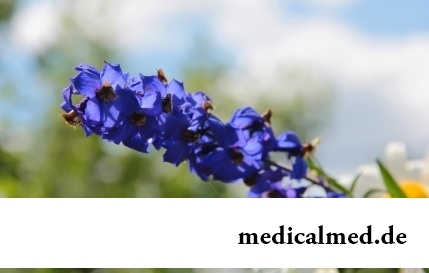
It is impossible to imagine human life in which there would be no plants. Practically in each apartment and any production room there are window plants, millions of people with pleasure are engaged in gardening and truck farming, many citizens пр...
Section: Articles about health
Iodine - one of thirty most important microelements in our organism. The main role of iodine consists in synthesis of thyroid hormones of a thyroid gland - the substances which are responsible for the majority of exchange processes of an organism. It is known that thyroid hormones consist of iodine more than for 65%. The lack of iodine leads to decrease in production of hormones and, as a result, development of a hypothyroidism. The long condition of deficit can become a source of problems of the cardiovascular, bone, digestive SI...
Section: Articles about health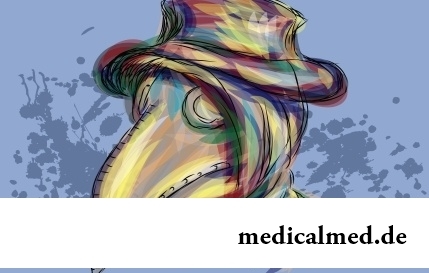
History of mankind contains several tens of epidemics whose emergence was compared by eyewitnesses and historians to doomsday. With...
Section: Articles about health
It would seem, about it there can be no disagreements: water is necessary for a human body for normal life activity, and about how and when it should be drunk, all know. It turned out that the situation is not absolutely so: for many years occur ве...
Section: Articles about health
The dietology, as well as other sciences, does not stand still. Food stuffs are exposed to comprehensive study, and scientists obtain new information on their properties and influence on a human body. Unfortunately, this reasonable and natural process gives unpleasant side effect from time to time: some types of food periodically declare "harmful" or even "deadly" without the bases, sufficient on that....
Section: Articles about health
Small appetite at the child – the complaint which pediatricians should hear practically from each mother. Most often it is carried to разр...
Section: Articles about health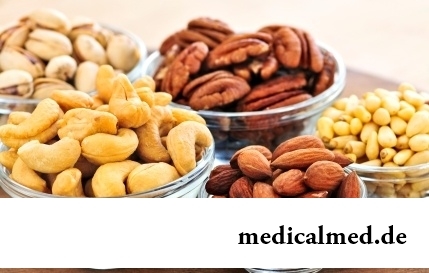
When overcomes feeling of hunger, and an opportunity to have dinner fully is absent, having a snack − the meals, small on volume, stabilizing sugar level in blood comes to the rescue. The relation of nutritionists to having a snack is more often negative, but only because in кач...
Section: Articles about health
The pine is one of the most widespread plants of our woods. Its needles and pitch not without reason called by "gallipot" were since ancient times used for strengthening of protective forces of an organism, treatment of avitaminosis, anemia and many other diseases. In recent years wide popularity was gained by the national medicines prepared from pinecones. "Fruits" of a coniferous tree contain a huge amount of vitamins, biologically active agents, antioxidants, phytoncides and other useful to...
Section: Articles about health
Diseases of joints often begin imperceptibly for the person. The first stages of destruction of the cartilaginous tissue providing soft and свободн...
Section: Articles about health
What they, women? Beautiful, gentle, passionate and at the same time windy, gusty, and nervous. And what is stranger: have all these qualities of the woman at the same time. But here only the mood their time sharply changes on completely opposite: in the morning...
Section: Articles about health
Each of us repeatedly noticed that the people having the same passport age are sometimes not similar on one-years at all. One at the age of 40-45 years already looks almost an old man, and another and in 60 is young, vigorous and full of life. The matter is that the condition of our health depends not on the number of the lived years, and on degree of safety of an organism. This factor also defines biological age of the person....
Section: Articles about health
It is difficult to revaluate importance of kidneys for an organism. These bodies not only perform work on purification of blood of decomposition products and выв...
Section: Articles about health
All like to sing. Small children with pleasure are engaged in a vocal, not especially thinking of hit in a melody. Adults most often hesitate, being afraid to show lack of talents in this area, and it is vain: singing is very useful for health....
Section: Articles about health
The stroke is one of the most widespread diseases of the person, annually in the world about 6 million cases of this pathology are registered. According to medical statistics, strokes occur almost three times more often than myocardial infarctions. The disease belongs to heavy, and has an unfavourable result: the lethality reaches 40% among women and 25% among men. A considerable part of the patients who endured a stroke cannot be recovered completely. We suggest readers to examine...
Section: Articles about health
Doctors claim that the people not so familiar with a dorsodynia occur among adult Russians very seldom. At the same time подавляющ...
Section: Articles about health
Proofs of efficiency of Mildronate at treatment of coronary heart disease with stenocardia can be found in many publications of the end of the twentieth century. Researches were conducted since 1984, including placebo - controlled effects. In total клиничес...
Section: Articles about health
Among a set of the perfumery and cosmetic goods which are released today the special group is made by the means containing antibacterial components. Such types of gels, shampoos, soaps, creams, lotions and other products are positioned by manufacturers as a panacea from all diseases caused by pathogenic microorganisms. The unlimited and uncontrolled use of similar means becomes result of trustfulness of the buyers hypnotized by persuasive advertizing sometimes. Many spetsial...
Section: Articles about health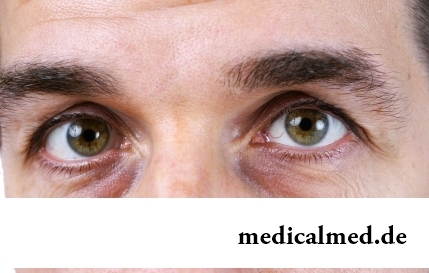
Zone hypostases under eyes - very widespread problem giving to people is a lot of inconvenience. Hypodermic fabric in these parts having...
Section: Articles about health
Health and attractiveness - eternal values, pursuing which people often use the most unusual ingredients and technicians. Let's consider 11 most exotic and sometimes not most pleasant Spa procedures to which the person in a pursuit for beauty agrees...
Section: Articles about health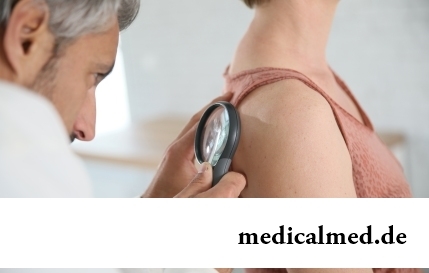
Scientists have no unambiguous opinion on a proximate cause of emergence of a carcinoma cutaneum today. Only the factors promoting development of this illness are precisely established. Treat them: long impact on skin of ultraviolet rays, radiation exposure, thermal injuries, injuries of skin by aggressive chemicals (pitches, acids, alkalis, etc.), genetic predisposition (existence of malignant new growths of skin in the family anamnesis), at...
Section: Articles about health
Contrary to popular belief, the multiple sclerosis (MS) is not connected neither with sclerous changes of walls of vessels, nor about age...
Section: Articles about health
The way of life of people promptly changes from year to year: if about ten years ago the personal computer was not in each family, then today already very few people do without this device. Certainly, and children master the computer at full speed: they not only I play...
Section: Articles about health
It would seem, to buy drugs in Moscow does not make a problem – a drugstore, and not one, is available for each resident of the capital within walking distance. And, nevertheless, Internet drugstores become more popular – what it is possible to explain such phenomenon with? Actually there is a lot of reasons and if to formulate them it is short, then the most suitable word will be - "conveniently". We suggest to get acquainted in more detail with pluses and minuses of online drugstores that buying drugs, not to make the wrong choice....
Section: Articles about health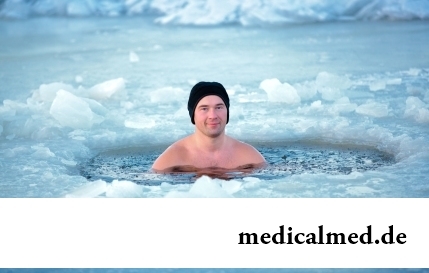
The winter swimming in open reservoirs called in our country by "winter swimming" – officially recognized sport and one of the ek...
Section: Articles about health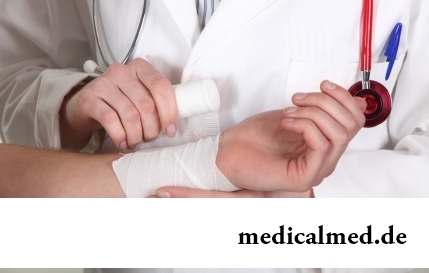
The words "disease" and "patient" not without reason come from one root – "pain". As a rule, symptoms of illnesses thoroughly spoil to patients life. However from this rule there are exceptions. Some diseases are shown by signs which can cause even полож...
Section: Articles about health
Today about 30 diseases, sexually transmitted are known. Wide circulation of these illnesses is extremely promoted by the dual attitude towards them: on the one hand, most of people know about "shameful" diseases very little and do not aim at receiving detailed and reliable information, considering that such problems personally will never concern them. With another – there are delusions about STD which instill unreasonable confidence that troubles such...
Section: Articles about health
